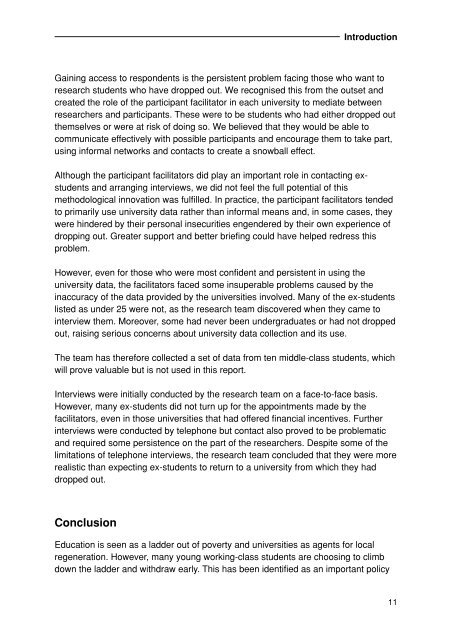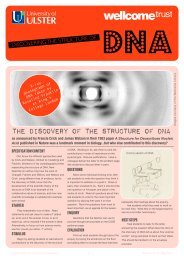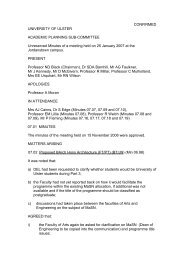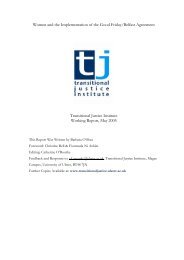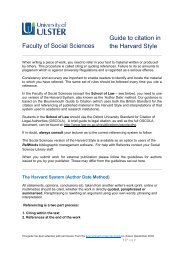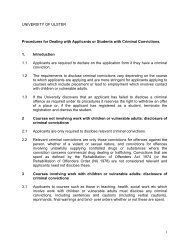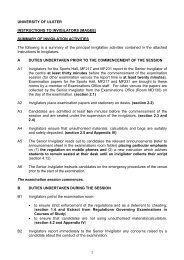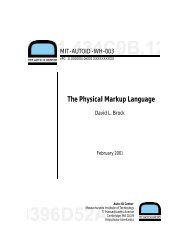From life crisis to lifelong learning: Rethinking working-class 'drop out'
From life crisis to lifelong learning: Rethinking working-class 'drop out'
From life crisis to lifelong learning: Rethinking working-class 'drop out'
Create successful ePaper yourself
Turn your PDF publications into a flip-book with our unique Google optimized e-Paper software.
Introduction<br />
Gaining access <strong>to</strong> respondents is the persistent problem facing those who want <strong>to</strong><br />
research students who have dropped out. We recognised this from the outset and<br />
created the role of the participant facilita<strong>to</strong>r in each university <strong>to</strong> mediate between<br />
researchers and participants. These were <strong>to</strong> be students who had either dropped out<br />
themselves or were at risk of doing so. We believed that they would be able <strong>to</strong><br />
communicate effectively with possible participants and encourage them <strong>to</strong> take part,<br />
using informal networks and contacts <strong>to</strong> create a snowball effect.<br />
Although the participant facilita<strong>to</strong>rs did play an important role in contacting exstudents<br />
and arranging interviews, we did not feel the full potential of this<br />
methodological innovation was fulfilled. In practice, the participant facilita<strong>to</strong>rs tended<br />
<strong>to</strong> primarily use university data rather than informal means and, in some cases, they<br />
were hindered by their personal insecurities engendered by their own experience of<br />
dropping out. Greater support and better briefing could have helped redress this<br />
problem.<br />
However, even for those who were most confident and persistent in using the<br />
university data, the facilita<strong>to</strong>rs faced some insuperable problems caused by the<br />
inaccuracy of the data provided by the universities involved. Many of the ex-students<br />
listed as under 25 were not, as the research team discovered when they came <strong>to</strong><br />
interview them. Moreover, some had never been undergraduates or had not dropped<br />
out, raising serious concerns about university data collection and its use.<br />
The team has therefore collected a set of data from ten middle-<strong>class</strong> students, which<br />
will prove valuable but is not used in this report.<br />
Interviews were initially conducted by the research team on a face-<strong>to</strong>-face basis.<br />
However, many ex-students did not turn up for the appointments made by the<br />
facilita<strong>to</strong>rs, even in those universities that had offered financial incentives. Further<br />
interviews were conducted by telephone but contact also proved <strong>to</strong> be problematic<br />
and required some persistence on the part of the researchers. Despite some of the<br />
limitations of telephone interviews, the research team concluded that they were more<br />
realistic than expecting ex-students <strong>to</strong> return <strong>to</strong> a university from which they had<br />
dropped out.<br />
Conclusion<br />
Education is seen as a ladder out of poverty and universities as agents for local<br />
regeneration. However, many young <strong>working</strong>-<strong>class</strong> students are choosing <strong>to</strong> climb<br />
down the ladder and withdraw early. This has been identified as an important policy<br />
11


